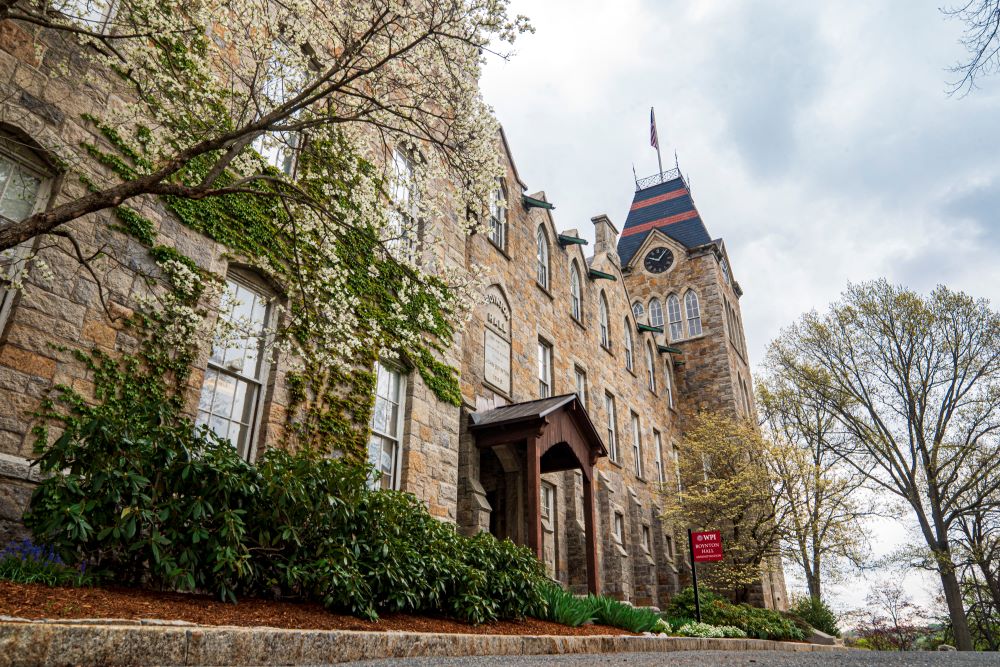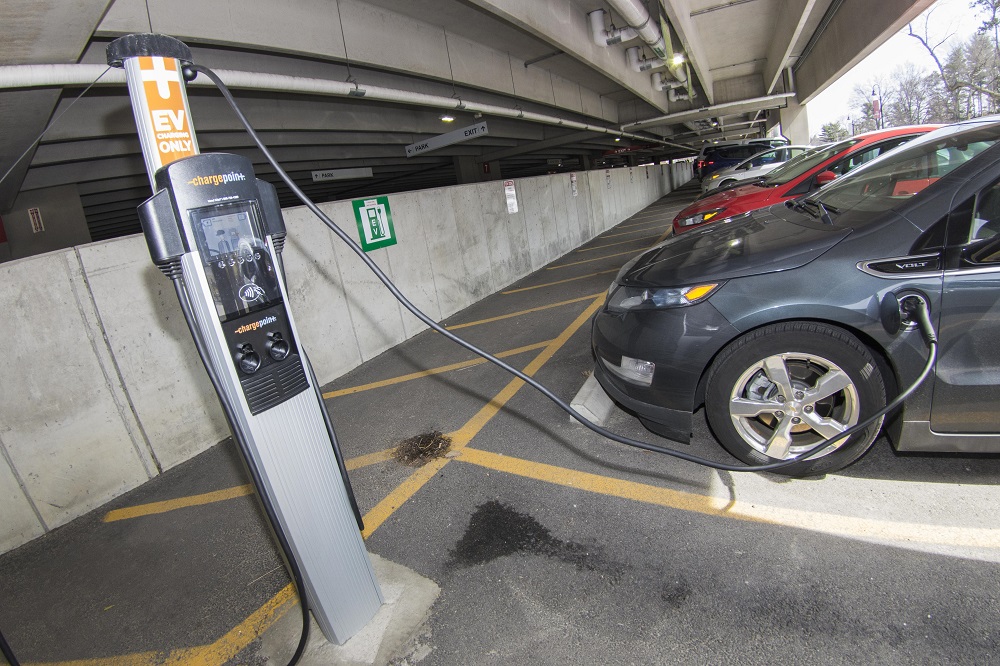Worcester Polytechnic Institute (WPI) is one of the 322 most environmentally responsible colleges in the U.S. and Canada, according to The Princeton Review (www.PrincetonReview.com). The education services company known for its test prep programs and college rankings, ratings and guidebooks, profiles WPI in the fourth annual edition of its free downloadable book, "The Princeton Review’s Guide to 322 Green Colleges."
"You see sustainable thinking everywhere on the WPI campus – from the way we maintain the grounds and recycle rain water in our buildings, to the food we eat on campus, and even to what’s being taught in our classrooms and through our project work around the world," said WPI President and CEO Dennis Berkey. "Sustainability is something this community cares deeply about, and our faculty, staff, students and alumni have proven that they will indeed make the investments and adjustments that our campus and our world need. WPI is proud of its continual strides toward sustainability, and it is gratifying to see our efforts recognized by The Princeton Review."
The Princeton Review chose the schools for this guide based on a 50-question survey it conducted in 2012 of administrators at hundreds of four-year colleges. The company analyzed data from the survey about the schools’ course offerings, campus infrastructure, activities and career preparation to measure their commitment to the environment and to sustainability.
In the guide’s profile on WPI, The Princeton Review highlights the work of the President’s Task Force on Sustainability, the university’s commitment to LEED-certified construction, and having an environmental studies degree program. It also noted that 28 percent of WPI’s food budget is spent on local or organic food, and that 80 percent of the school grounds are maintained organically.
"We are truly pleased to recommend WPI along with all of the fine schools in this book to the many students seeking colleges that practice and promote environmentally responsible choices and practices," said Robert Franek, senior VP/publisher of The Princeton Review.
Franek noted his company’s recent survey findings indicating significant interest among college applicants in attending "green" colleges. "Among 9,955 college applicants who participated in our 2013 ’College Hopes & Worries Survey,’ 62 percent said having information about a school’s commitment to the environment would influence their decision to apply to or attend the school," he said.
Following are excerpts about WPI’s efforts from the "Guide to 322 Green Colleges":
"Students have ample opportunity to explore sustainability through academic programs and green student organizations," the guide says in part. "From the minute they step on campus, WPI students are focused on solving the world’s great problems, including food, energy, health, and engineering for sustainability. The university’s project-based approach allows for students to apply their classroom and lab-acquired knowledge to solve real-world problems in their back yards and around the world.
"The Presidents’ Task Force on Sustainability at WPI provides leadership and coordination for campus-wide efforts such as the installation of a new campus energy management system, the formation of a partnership with ZipCar, the commitment of food services to buy locally produced organic food, and improvements to campus-wide recycling and food waste reduction efforts. The WPI Board of Trustees has endorsed a policy calling for all future buildings on campus to be environmentally friendly and pursue LEED certification.
"Thanks to the Student Green Team, last year WPI placed 12th out of more than 1,000 colleges and universities in the Great Power Race, a clean energy competition between students in China, India and the United States. Notably, WPI’s Admissions building was the first LEED-certified building in Worcester, while the newest residence hall on campus provided the city with its first green roof and is certified LEED Gold."
The Princeton Review created its "Guide to 322 Green Colleges" in partnership with the Center for Green Schools (www.usgbc.org) at the U.S. Green Building Council (USGBC)), with generous support from United Technologies Corp. (www.utc.com), founding sponsor of the Center for Green Schools. Published a few days before the April 22 celebration of Earth Day, the 215-page guide is the only free comprehensive resource of its kind: it can be downloaded at www.princetonreview.com/green-guide and www.centerforgreenschools.org/greenguide.
The 322 school profiles in the guide feature essential information for applicants – facts and stats on school demographics, admission, financial aid – plus write-ups on the schools’ specific sustainability initiatives. A "Green Facts" sidebar reports on a wide range of topics from the school’s use of renewable energy sources, recycling and conservation programs to the availability of environmental studies and career guidance for green jobs.
About The Princeton Review
Founded in 1981, The Princeton Review (www.PrincetonReview.com) is a privately held education services company headquartered in Framingham, Mass. The Company has long been a leader in helping students achieve their education and career goals through its test preparation services, tutoring and admissions resources, online courses, and more than 150 print and digital books published by Random House, Inc. The Princeton Review delivers its programs via a network of more than 5,000 teachers and tutors in the U.S.A., Canada, and international franchises. The Company also partners with schools and guidance counselors worldwide to provide students with college readiness, test preparation and career planning services.


